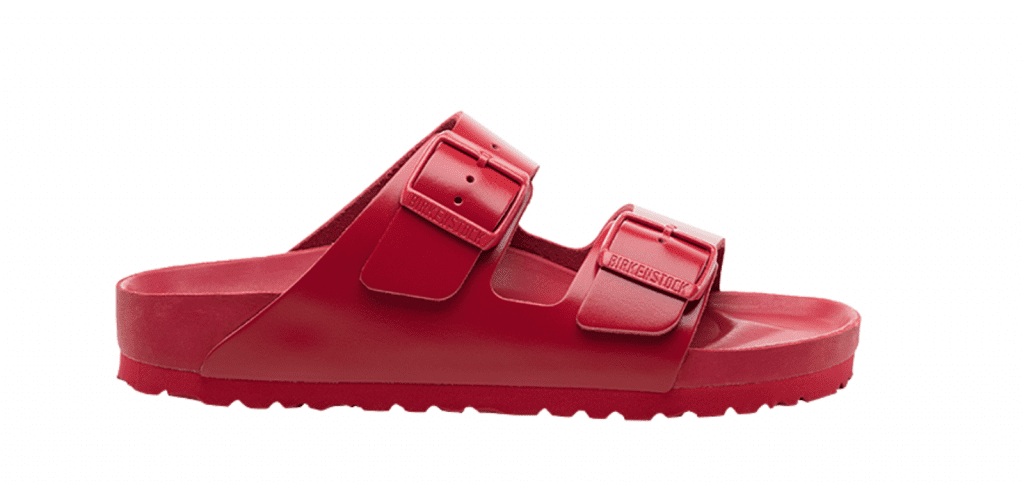Birkenstock makes 70,000 pairs of Birkenstock sandals in its factory in Görlitz, Germany each day, sending them “off into the world to meet the current clamorous demand,” according to the Financial Times. The Neustadt, Germany-based brand has roots dating back to 1774 – technically making its 245 years old, but the company as we know it today is more solidly founded in early 1900’s when the first contour insole for the company’s “boat-like, buckle-heavy” namesake sandal was produced and sold in two Birkenstock outposts in Frankfurt, Germany.
While Birkenstock fits neatly into the current landscape of ugly-chic footwear and nostalgia-soaked fashion, it is not like every other brand, its co-CEO Oliver Reichert, 48 – who has worn the company’s sandals since he was a teen – wants you to know. The privately-held, family-controlled company – which does not report revenue results, but is estimated to do roughly $800 million in sales each year – does things differently.
For one thing, “We don’t pay the celebrities to wear our shoes, we don’t push anything. We don’t touch it. They are simply talking, sharing, and taking pictures,” Reichert, who joined the company in 2012 in the midst of squabbles amongst Birkenstock family members, told Forbes a couple of years ago. It was not until rather recently that Birkenstock established “a real marketing and PR operation.” As Cathy Horyn put it, writing for The Cut, “People had always discovered Birkenstocks on their own — the shoes were the perfect blend of quality and function.”
This is not to say that publicity by way of celebrities and third-party media attention has not come – because it has. The company is, per Forbes, “still flying high from a surge in popularity on the fashion scene via homages from high-fashion brands like Céline, [which] in 2012 sent mink-lined versions of the sandals down their runway, and Givenchy who created a black pair embossed with pink roses that same season.” Fast forward to Gwyneth Paltrow publishing a photo of herself in a white pair to her lifestyle site, GOOP, and Vogue devoting “a piece gushing over” it shortly thereafter.
Birkenstock has even made its own forays into fashion. In July 2017, it hosted a presentation styled by Mel Ottenberg and stages at Jardin de Tuileries in Paris. But to be clear, Reichert says that the brand “does not want to be a part of the fashion industry,” but instead, “just wanted to host a nice party.”
Then there are the collaborations – including those with Valentino, Marc Jacobs, Rick Owens, and Opening Ceremony – but not too many collaborations. Reichert has strong feelings about the practice, of course. He told Horyn last year that it had, in Horyn’s words, “little [to] gain in being perceived as another classic brand on the trendy-fashion punch list.” In Reichert’s own words, chasing industry buzz is “just prostitution.”
As Reichert told the Financial Times just this month, “What most [brands] do is create short-term buzz by putting logos on commercial products.” It’s prudent to be picky, he argues. So, the company turns brands down … big name brands like Vetements, for example, the pet project of Balenciaga creative director Demna Gvasalia. Birkenstock also turned down a collaboration with Supreme, which could very well be the buzziest streetwear brand in the world, with its bouncer-flanked stores and incessantly sold-out wares.
“It was never about function for them, just logos,” Klaus Baumann, Birkenstock’s chief sales officer, speaking about Supreme, which regularly draws long lines of consumers outside of its store every week on Thursday when it “drops” new products, including collaborations. “These were not product people.”
Birkenstock’s management is seemingly unimpressed by such antics.
Not mincing words Baumann states, “If I put a bouncer outside our doors on Saturday and regulate letting people in, I too could have a queue outside.”











